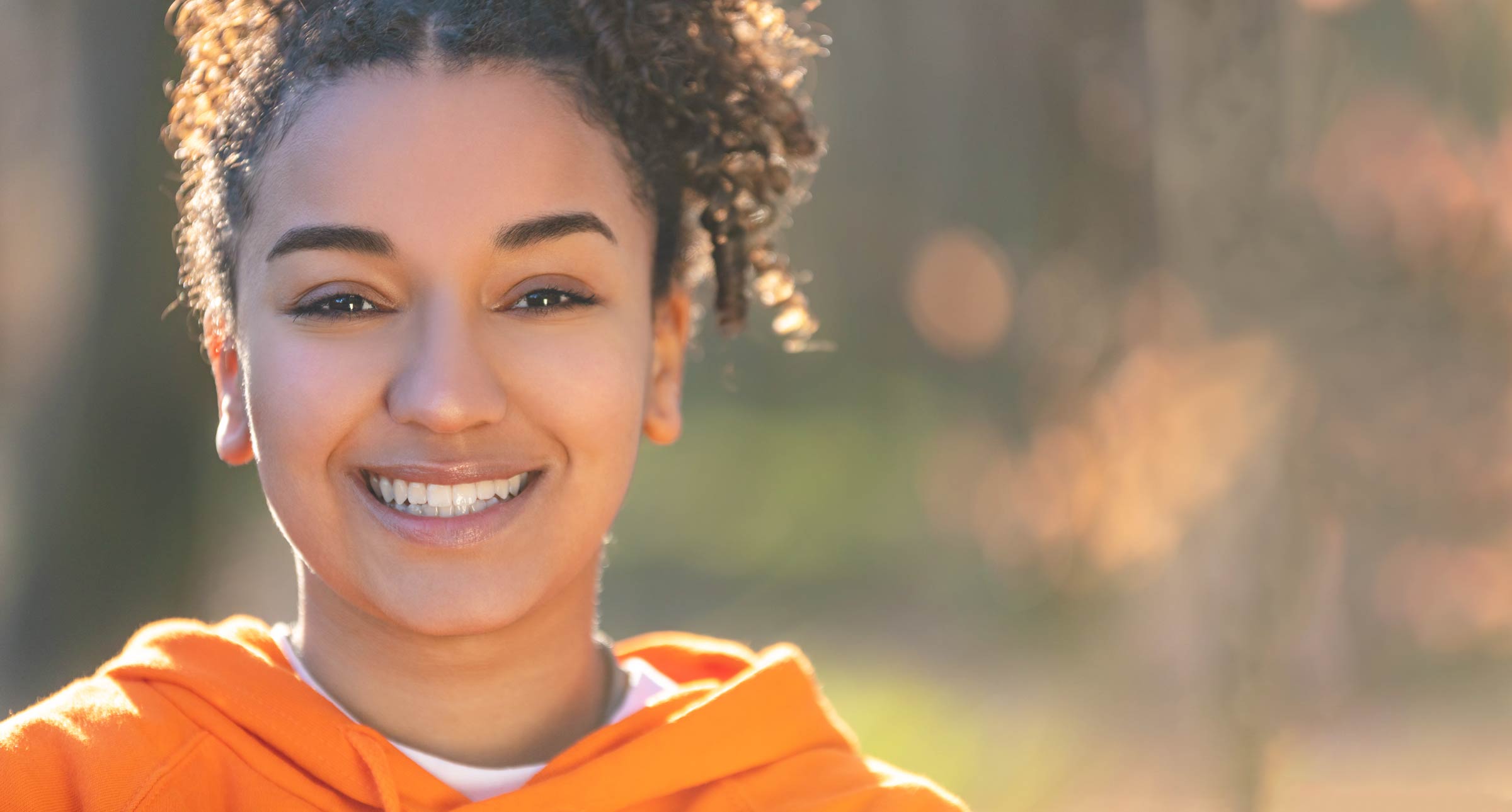When Will I Get My First Period?
No one can know precisely when they will get their first period, but it will come sometime during puberty. For some girls, puberty starts at age 8, but for other girls, this can happen as late as 16. Everyone’s different!
While you won’t predict when your first menstrual flow will come specifically, there are certainly some signs that it’s on its way.
Once puberty starts, your body goes through some changes as you begin to develop into an adult. For example, you may notice that your breasts are growing and hair growing in your pubic area. This hair will also grow under your arms.
If you keep track of changes during puberty, you may get a better estimate of when your period is coming.
Signs Your First Period Is on Its Way
Many girls get their first period about two years after breast development or breast bud development.
In the first part of this process, you might notice changes to your nipples. Then, close to the start of puberty, you may realize small bumps around your nipples have risen. Later on, the darker part of your nipples will grow and stick out.
These lump-like areas are called breast buds. They may grow on both sides at once or start on just one side. It’s normal for them to be uneven for a while. It may be six months until the smaller side catches up.
Another indicator of puberty changes is your body shape. For example, you may grow taller and gain some weight as your hips widen, your breasts grow, and you develop a more “curvy” adult figure.
A significant indicator that your period is near is if you notice any fluid coming from your vagina. The white substance is called discharge, and it may be thin or thick or a clear to white color. But, again, it’s a natural part of being a woman and no cause for concern.
If you feel comfortable asking your mother or older sister when they first got their period, that will help you narrow down when it might come, as this process is partially genetic.
It’s part of your menstrual cycle, which includes your period but also a whole lot more. Typically, this can happen around six months before your first period starts. However, you may begin to feel PMS symptoms before your period, usually about a week or two earlier: premenstrual syndrome. The majority of women, at least 75%, report feeling premenstrual syndrome.
PMS can make you more emotional or cause bloating, a feeling of fullness in your stomach, or headaches. These are many different combinations of symptoms women experience right before their period, but for the most part, it’s not severe. Your PMS will likely vary from your friends and change monthly until you become older and your cycle is more predictable.
If you sense that your cycle is coming, you might worry about whether you have to do anything to get ready.
If your period might be coming soon – make the first-period kit!
If you’re starting to see these signs, you may want to prepare a first-period kit for your first period to ease your mind. Keep a pad and extra underwear in your backpack in case it comes during school. You may also want to download a period tracking app like FlowFlow or learn how to use the calendar app on your phone to log the days you get your period.
Since your period tends to come simultaneously each month, knowing when you got it last is helpful. However, keep in mind that it’s normal to have an unpredictable period at first, and it may take years after your first period for it to become regular.
While your friends may be excited about the new experience, and you may feel like you’re missing out if you haven’t gotten yours yet, it isn’t a race. Even if it comes late, you will still have plenty of your periods in your life.
Having a period isn’t always comfortable, and you may not always look forward to it. However, being a little slower to have your period means less time worrying about PMS or whether you have pads nearby.
Although some can’t wait to get their first period, for others, it produces anxiety. Maybe your friends told you about some of the less comfortable parts of your cycle, such as cramping, and you’re concerned.
When will I get my next period after the first one?
You may be wondering when your next period will arrive. It’s impossible to predict with 100% accuracy, but most girls go on average 28 to 35 days from the first day of their first cycle.
While it is normal for women to experience irregular periods at the beginning of their menstrual cycles, several things can cause this. For instance, changing hormone levels and taking birth control pills (the pill) may help regulate regularity in cases where a doctor believes these are necessary or helpful measures.
What Are Period Cramps?
Contractions cause period cramps in the uterus, the muscular organ involved in menstruation. In addition, it can cause pain in the abdomen or back, which usually decreases in the first few days of your period.
These cramps may feel sharp or more like a stomachache. Cramps are very common and not a sign that something is off. Some people don’t experience cramping, but other physical symptoms like headaches. While I won’t pretend cramps are anywhere near a pleasant experience, typically, they are easily managed with pain medication.
No matter how you’re feeling about your period, you’re not alone. Whether you’re scared or ready to welcome your cycle, chances are other girls feel the same way. So it’s not a bad idea to talk to a trusted adult about their period experience and ask them any remaining questions you have.
If you don’t get your period by age 16, it’s a good idea to check in with your doctor.
Otherwise, wait it out. There’s nothing you can do to make it come sooner or later. It’s not easy to be the first or last in your class to go through these changes, but all the girls will be sharing the experience in just a few years.
When you’re older, you may not even remember your period or how old you were when you got it. Watching your body change can undoubtedly be exciting, but over time, your cycle itself will be less of a big deal, and your period worries will be a thing of the past!
FAQ – Frequently Asked Questions
Do most girls bleed through their clothes?
If you stain something like your favorite towel or underwear, don’t feel embarrassed because the stains are not a big deal; soak them in vinegar, and the blood should come out.
When I get pubic hair, will I start my period?
Typically a girl gets her first signs of puberty between 8-14. This can take up to two years after breasts start growing or one year from getting that white vaginal discharge. It means the hormones have started flowing. You’ll notice that underarm and pubic hair grow as well. These are all signs of developing into womanhood and getting your first period.
Do I go to the school nurse if I start my period at school?
It’s a good idea to check in with the nurse or counselor if your first period is at school or if you have any questions or concerns.
Why does it look like a lot of blood?
Most girls and women have only a few tsp of blood, though it often looks like a lot more. In some women, the uterus is overactive, and there is so much blood it soaks through pads or tampons very quickly. If you have a very heavy or long-lasting period with much blood loss, please review with your doctor.
Can you die from a period?
The period is not deadly, but the disruption it causes to women and society can be distressing. As periods are chronic, they will continue occurring throughout a woman’s menstrual life.
How long does the period last?
The menstrual cycle, which is counted from the first day of one period to the next, can vary depending on a woman’s body. For example, the menstrual flow might occur every 21-35 days and last 2-7 days.
What do I do about the menstrual period pain?
A whole range of solutions is available for your discomfort. For example, you can use a heating pad, take a nice warm bath, lay on your side in a fetal position, engage in some light exercise, drink peppermint tea, or take over-the-counter pain medication like ibuprofen. However, if you have severe abdominal pain, please discuss it with your doctor.
What are menstrual cups?
Menstrual cups are a reusable alternative to pads and tampons that can be used for 12 hours. They’re made out of two different materials: silicone or rubber, depending on your needs (and preferences). If you have sensitive skin, it’s best to buy the latter since they don’t contain any latex.
What is toxic shock syndrome?
Toxic shock syndrome is a rare but severe condition that affects many systems in your body at once. It’s caused when the immune system reacts to toxins produced by bacteria, and it can be curable with proper treatment. Toxic shock syndrome (TSS) is caused by either streptococcus or staphylococcus bacteria. These bacteria usually live on the skin, nose, or mouth without causing harm, but if they get deeper into the body, they can release toxins that damage tissue. Ensure you change each tampon every 4-8 hours. Never wear a single tampon for more than 8 hours at a time and use the lowest absorbency tampon needed.






































